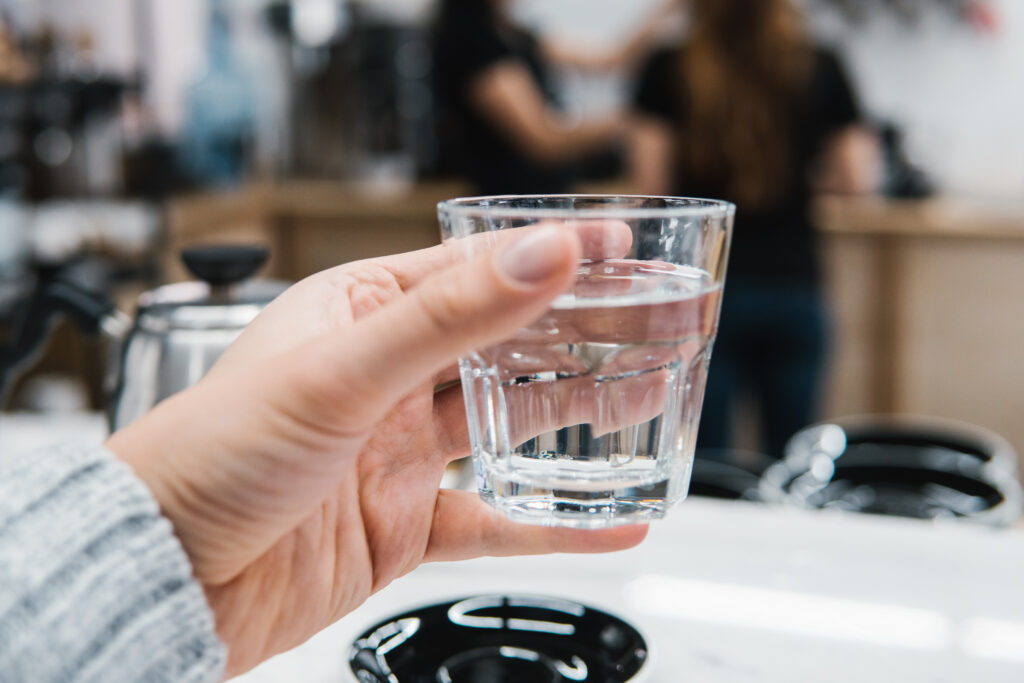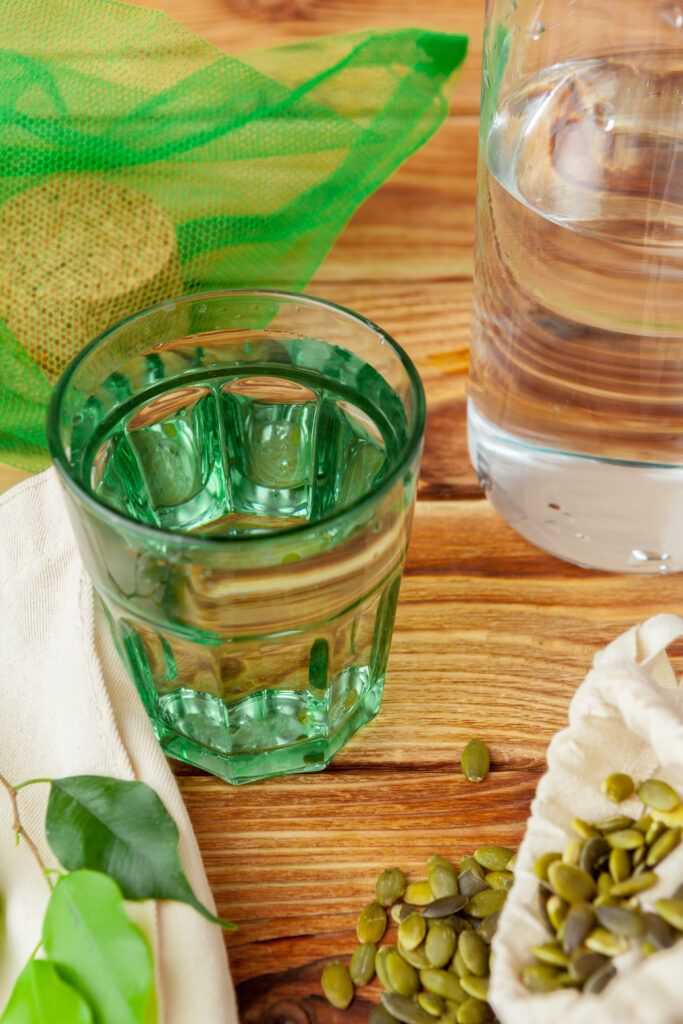
How Much Water Should I Drink a Day to Lose Weight?
I’m sure we have all heard it before, “Drink more water to lose weight!” Whether it’s a friend’s advice, a magazine headline, or a social media post, the idea that water is the key to shedding those extra kilos seems to be everywhere. But how much truth is there to this claim? Can simply filling up your water bottle really help you reach your weight loss goals?
While water is undeniably essential for our overall health and well-being, it’s not quite the magic elixir that some make it out to be. Water can indeed play a role in weight management, but it’s far from the only factor at play.
In this blog post, we’ll explore the science behind water and weight loss. We’ll explore how water affects our bodies, whether it can help burn calories or curb cravings, and how much you should be drinking each day. Hopefully, by the end, you’ll have a clearer understanding of how water fits into a healthy weight loss plan, along with practical tips to stay hydrated and set realistic expectations.
The Role of Water in Our Body
Water is the unsung hero of our bodies, playing a pivotal role in almost every function. Think of it as the oil that keeps the intricate machinery of our body running smoothly. It’s essential for metabolism, the process by which our bodies convert food into energy. Without adequate water, this process slows down, potentially hindering weight loss efforts.
Water is also crucial for digestion. It helps break down food, allowing our bodies to absorb nutrients for efficiently. Additionally, it acts as a transportation system, carrying nutrients to our cells and flushing out waste products. In essence, staying well-hydrated ensures that our digestive system is working optimally, which can have a positive impact on our weight.
Water also helps regulate body temperature, lubricate joints, protect organs and tissues, and even transport oxygen throughout our bodies. When we’re well hydrated, these processes function more efficiently, contributing to overall health and potentially making it easier to maintain a healthy weight.

Water & Calorie Burning
You might have heard that drinking water can help you burn calories. While this isn’t entirely a myth, it’s important to understand the nuances. Some studies have shown that drinking water, especially cold water, can lead to a temporary increase in calorie expenditure. This phenomenon is known as thermogenesis, where your body expends energy to warm the water to match your internal temperature.
However, the impact of this effect on weight loss is relatively small. While it’s true that you might burn a few extra calories after drinking a glass of water, it’s unlikely to lead to significant weight loss on its own. This of it as a tiny boost rather than a major calorie-burning strategy.
It’s also worth noting that this effect is temporary. Once the water reaches your boy temperature, the calorie-burning effect subsides. So, while drinking water throughout the day can contribute to overall calorie expenditure, it’s important to manage expectations and not rely on it as the sole method for weight loss.
Water as an Appetite Suppressant
Another way that water can indirectly support weight loss is through its potential to act as an appetite suppressant. Drinking a glass or two of water before meals can help fill your stomach, leading to a feeling of fullness and potentially reducing the amount of food you eat. This is because water takes up space in your stomach, triggering stretch receptors that signal to your brain that you’re full.
Research on this effect has shown mixed results. Some studies have found that drinking water before meals can lead to a decrease in calorie intake, while others have found a significant impact. It’s likely that this effect varies between individuals and depends on factors like your hunger levels, the type of meal you’re eating, and your overall eating habits.
However, even if the appetite-suppressing effect is modest, it can still be a helpful tool for weight management. By making you feel fuller, water can help prevent overeating and reduce your overall calorie intake, which can contribute to weight loss over time.
Water vs Sugary Drinks
One of the most impactful ways that water can contribute to weight loss is by replacing sugary beverages in your diet. Sugary drinks like soft drinks, juice, energy drinks and sweetened coffee or tea are often packed with calories, typically without providing any nutritional value.
A single can of soft drink can contain as much as 150 calories, primarily from added sugar. Similarly, a glass of orange juice can have over 160 calories. These calories can quickly add up, especially if you consume multiple sugary drinks throughout the day.
Substituting water for these sugary beverages can lead to a significant reduction in your daily calorie intake. For example, if you typically drink two cans of soft drinks a day, switching to water could save you 300 calories. Over a week, that’s a deficit of 2100 calories, which is equivalent to almost one kilogram of body fat!
Even seemingly ‘healthy’ drinks like fruit juice can be surprisingly high in calories and sugar. While they do contain some vitamins and minerals, they often lack the fibre found in whole fruits, which can help regulate blood sugar levels and promote feelings of fullness.
By making a conscious effort to choose water over sugary drinks, you can easily cut hundreds of calories from your diet without feeling deprived. This simple swap can be a game-changer for weight loss, as it directly reduces your calorie intake and eliminates empty calories that contribute to weight gain.
How Much Water Should You Drink?
You’ve probably heard the age-old advice to drink eight glasses of water a day. While it’s a simple and catchy rule, it doesn’t have a strong scientific basis. In reality, your individual water needs can vary widely depending on several factors:
- Activity Level: If you’re physically active or exercise regularly, you’ll need to drink more water to replace fluids lost through sweat.
- Climate: Hot and humid weather can lead to increased sweating, requiring higher water intake to stay hydrated.
- Body Size: Larger individuals generally need more water than smaller individuals due to their higher body mass.
- Overall Health: Certain medical conditions or medications can affect your fluid needs.
So, how much water should you aim for? While there’s no one-size-fits-all answer, a good general guideline is to aim for pale yellow urine. This indicates that you’re well-hydrated. If your urine is darker yellow, it’s a sign to need to drink more water.
It’s also important to listen to your body’s thirst cues. Thirst is a natural indicator that you need to replenish fluids. If you’re feeling thirsty, drink water. Don’t force yourself to drink if you’re not thirsty, but also don’t wait until you’re extremely thirsty to drink.
Tips for Increasing Your Water Intake
Incorporating more water into your daily routine doesn’t have to be a chore. Here are some simple and effective tips to boost your water intake:
Remember, consistency is key. By making small changes and incorporating these tips into your daily routine, you can gradually increase your water intake and reap the benefits of staying hydrated.

Water's Role in Your Weight Loss Journey
Water is an essential component of a healthy lifestyle, and it can certainly play a supportive role in your weight loss journey. By understanding the science behind water’s impact on our bodies, we can set realistic expectations and make informed choices. While water is not a magical weight loss cure, it can aid in boosting metabolism, potentially curbing appetite, and most importantly, replacing calorie-laden sugary drinks.
Remember, listening to your body’s thirst cues and staying hydrated is key. Don’t obsess overreaching a specific number of glasses per day, but rather, focus on consistently incorporating water into your daily routine.


Start Your Weight Loss Journey with Personalised Care at My Weight Loss Clinic
If you’re looking for comprehensive support in your weight loss journey, contact the team at My Weight Loss Clinic. Our team of clinicians can provide personalised guidance and evidence-based solutions tailored to your individual needs and goals. Book your bulk-billed initial consultation today and take the first step towards a healthier you!
My Weight Loss Clinic
We specialise in education and empowerment. We want this to be the last weight loss program you do.
"*" indicates required fields